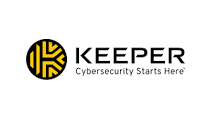— Ken Rust
NEW ORLEANS, LOUISIANA, UNITED STATES, November 22, 2023 /EINPresswire.com/ — In the shadow of rising global population and urban density, securing a sustainable and self-sufficient food source within city landscapes has become critical. Ken Rust, the visionary owner of Enterprise Aquatics, unveils the challenges that urban farming projects face in scaling up and presents practical, innovative solutions to foster growth and sustainability in urban agriculture.
The Urban Farming Imperative
Urban farming has emerged as a beacon of hope for food security, bringing fresh produce to city dwellers and revitalizing communities. “As we navigate through the complexities of climate change and urban expansion, urban farming stands out as a resilient solution,” says Ken Rust. “However, scaling these projects to meet the growing demand poses significant challenges.”
Key Challenges in Scaling Urban Farming
Spatial Limitations: Urban areas often lack the expansive land necessary for traditional farming. Rust notes, “Finding adequate space for urban farms is a puzzle. Rooftops, vacant lots, and even indoor spaces must be leveraged to maximize agricultural output.”
Resource Management: Water and soil quality, crucial for traditional agriculture, present unique obstacles in urban environments. “The closed-loop systems of aquaponics and hydroponics that are developed at Enterprise Aquatics are game-changers, recycling water and nutrients with remarkable efficiency,” Rust explains.
Economic Viability: For urban farming to be scalable, it must be economically sustainable. “Securing funding and demonstrating profitability is a hurdle for many urban farms,” says Rust. “Diversifying crop selection and integrating technology can lead to higher yields and better market competitiveness.”
Policy and Zoning Restrictions: Urban farming often faces bureaucratic red tape. “Collaborative efforts between urban farmers and city planners are essential to navigate zoning laws and create agriculture-friendly policies,” Rust suggests.
Educational Gaps: A lack of knowledge in innovative farming techniques can stifle growth. “Investing in education and community programs can cultivate a new generation of urban farmers,” Rust emphasizes.
Solutions for Sustainable Growth in Urban Farming
To overcome these challenges, Enterprise Aquatics and Ken Rust propose a multi-faceted approach:
Vertical Farming Innovations: Utilizing vertical space can exponentially increase crop production without expanding the footprint. “Vertical farming is not just a space-saver; it’s a revolution in urban agriculture,” Rust asserts.
Technology Integration: Smart farming technologies like IoT sensors and AI can optimize resource use and crop health. “Precision agriculture can transform urban farming from grassroots to high-tech, high-yield operations,” Rust explains.
Community Engagement: Urban farming thrives with community support. “Initiatives like ‘farm-to-table’ events and educational workshops can build a strong consumer base and foster community involvement,” Rust points out.
Public-Private Partnerships: Collaboration with local governments and businesses can lead to shared benefits. “Partnerships can unlock new funding opportunities, shared resources, and mutually beneficial outcomes,” says Rust.
Policy Advocacy: Active participation in policy-making can create a more favorable environment for urban farming. “Policies must be advocated for that recognize the importance of urban agriculture in city planning and development,” Rust urges.
Sustainable Business Models: Urban farms should explore innovative business models. “Subscription services, urban CSA programs, and farm-to-business supply chains are just a few models that can help urban farms thrive economically,” Rust advises.
Enterprise Aquatics: At the Forefront of Urban Farming Solutions
Enterprise Aquatics is not only addressing these challenges but also leading by example. The company’s successful integration of aquaponic systems in urban spaces demonstrates the viability of scalable urban farming. “The systems have turned non-arable urban spaces into productive, green environments. We’re proving that with the right approach, urban farming can flourish,” Rust proudly states.
A Call to Action for Urban Agriculture Advocates
Ken Rust and Enterprise Aquatics call on entrepreneurs, community leaders, and policymakers to join forces in transforming urban landscapes into fertile grounds for agriculture. “The future of urban farming is bright, but it requires collective commitment to innovation, education, and policy reform,” Rust concludes.
Morgan Thomas
Rhino Digital, LLC
+1 504-875-5036
email us here
Visit us on social media:
Facebook
![]()
Originally published at https://www.einpresswire.com/article/670319394/addressing-the-future-of-food-security-through-innovative-urban-agriculture




